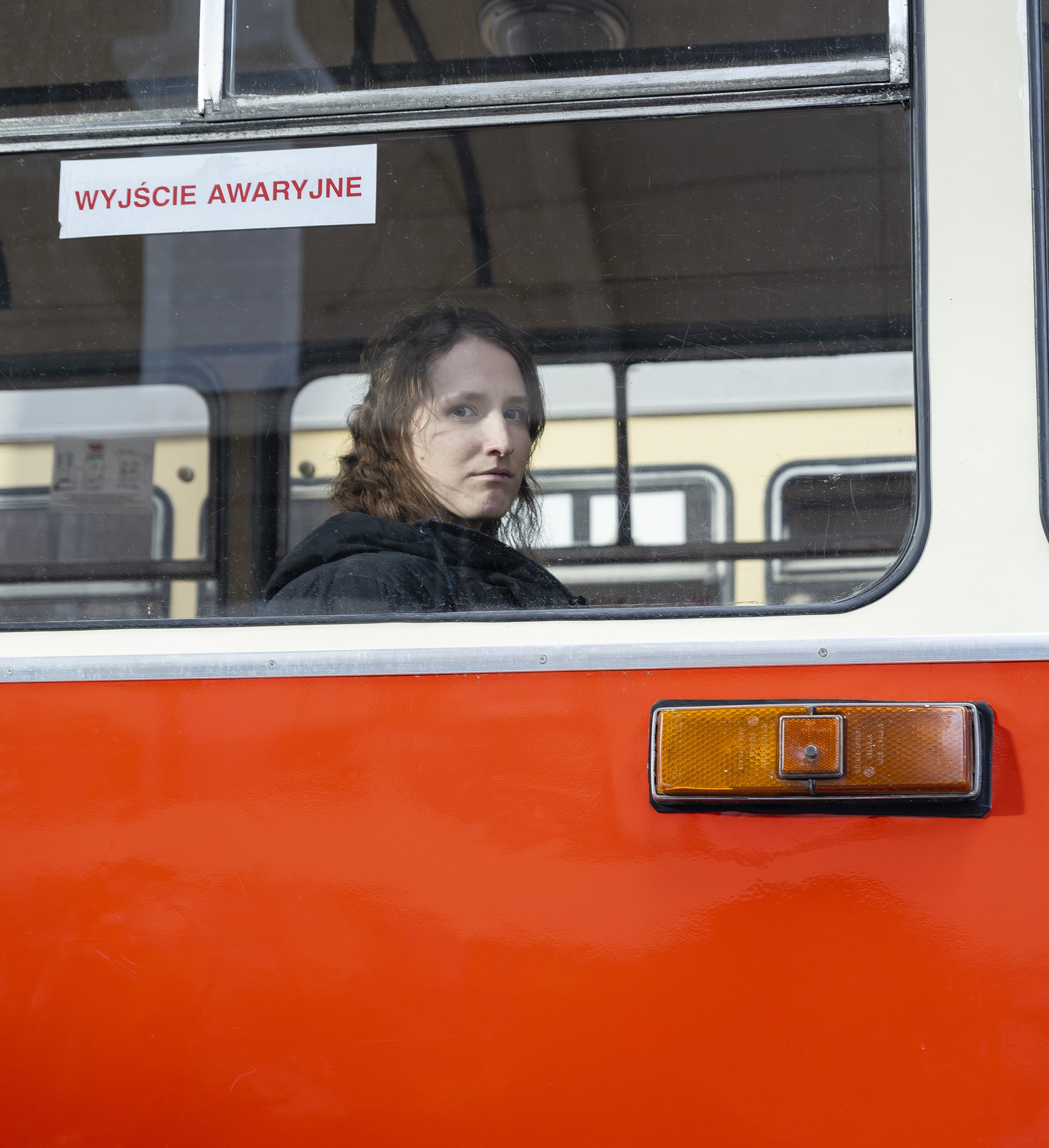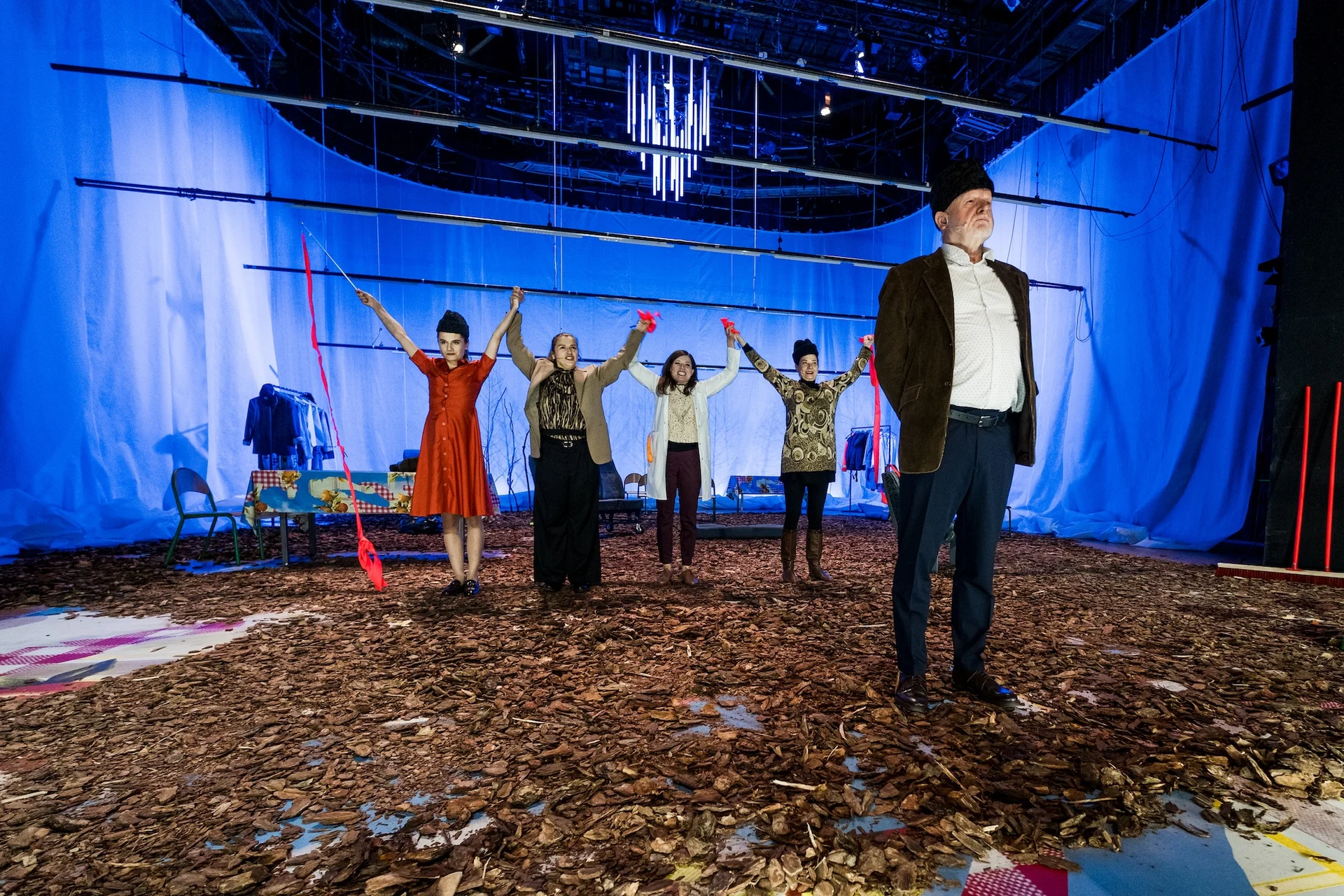Stories of grandmothers whispered by mothers to their daughters
- tekst, reżyseria: Gianina Cărbunariu

A critically acclaimed bitter tale laced with black humour. The performance by the famous European director Gianina Cărbunariu is an intergenerational journey, during which we look at the time of the Romanian dictatorship, the Round Table deliberations, as well as contemporary Poland.
Cărbunariu takes the taboo of abortion beyond the boundaries of time or countries. The story is woven from women's experiences and the narrators of the tale are daughters, mothers and grandmothers... but are they really?
Obsada
Realizatorki i realizatorzy
- tekst, reżyseria: Gianina Cărbunariu
- przekład: Radosława Janowska-Lascar
- scenografia i kostiumy: Anna Maria Karczmarska, Mikołaj Małek
- muzyka: Karol Nepelski
- choreografia: Katarzyna Sikora
- dramaturgia: Anna Mazurek
- reżyseria światła: Rafał Paradowski
- asystentka, tłumaczka : Klaudia Gębska (AST)
- asystent reżyserki: Michał Lewandowski
- inspicjentka: Anna Pawicka
"There is no place in Romania for women who are not mothers!"
Between 1966 and 1989, during the dictatorship of Nicolae Ceaușescu, "Decree 770" was in force in Romania. It resembled the Polish "abortion compromise", but in Romania it also included a ban on contraception. The decree was aimed at increasing the population and building the power of the state. It was the most restrictive law in the entire Soviet bloc. It cost thousands of women their lives and left a mark on society that reached back several generations. Can Romania's dark history, passed down through the stories of grandmothers and mothers, serve as a warning? Can Romania's past become the future of Poland, Hungary, the United States?
Gianina Cărbunariu is a Romanian playwright and theatre director working with some of the best theatres in the world. Her plays have been presented at many international festivals (including Avignon), as well as in Budapest, Berlin, Brussels, Paris and Lyon.

photo by Daniel Rumiancew, poster design: Pełnia Studio
Support partner:


We would like to thank the Museum of Technology and Communication Art Depot in Szczecin for providing the space for the photo shoot for the poster.
Reviews
- „It's a fable about evil people who do evil because they like it that way. And we realise that this fairy tale is our reality. Gianina Cărbunariu took the abortion ban as a starting point and focused on its consequences. She focused on the mechanisms of authoritarian power, warning us that introducing it in a democratic country is not all that difficult. What is the difference between communist Romania and present-day Poland (...)?”.– Małgorzata Klimczak, Dziennik Teatralny (go to source)
- „A very important and necessary performance. It fits into the social sensitivity and educational mission of the Contemporary Theatre (...). The form of Gianina Cărbunariu's theatre surprised me. She has managed to weave lightness, humour and, above all, distance into a story about extremely difficult topics. And for the layers of the latter, kudos are due to the entire acting ensemble. And a request: let's keep whispering this tale”.– Daniel Źródlewski, Teksty Żródłowe (go to source)
- „[The performance] is to present the stories of 'grandmothers, not grandfathers', which - although they happened in real life - resemble ghostly fairy tales. Like fairy tales, they must be repeated and remembered, because without memory a better future cannot be built”.– Magdalena Rewerenda, Czas Kultury (go to source)
- „(...) is a firecracker. But this explosive comparison also brings with it the sadness that in 2023 in Poland we must, with the help of sister country Romania, invent gunpowder. For Gianina Carbunariu has made a performance that is outstanding and obvious at the same time. Only that the word 'obvious' here does not mean 'banal'. Rather, it refers to the courage to say simple, obvious things in a country where 'black is white and white is black”.– Witold Mrozek, Wysokie Obcasy (go to source)
Do pobrania
Multimedia
